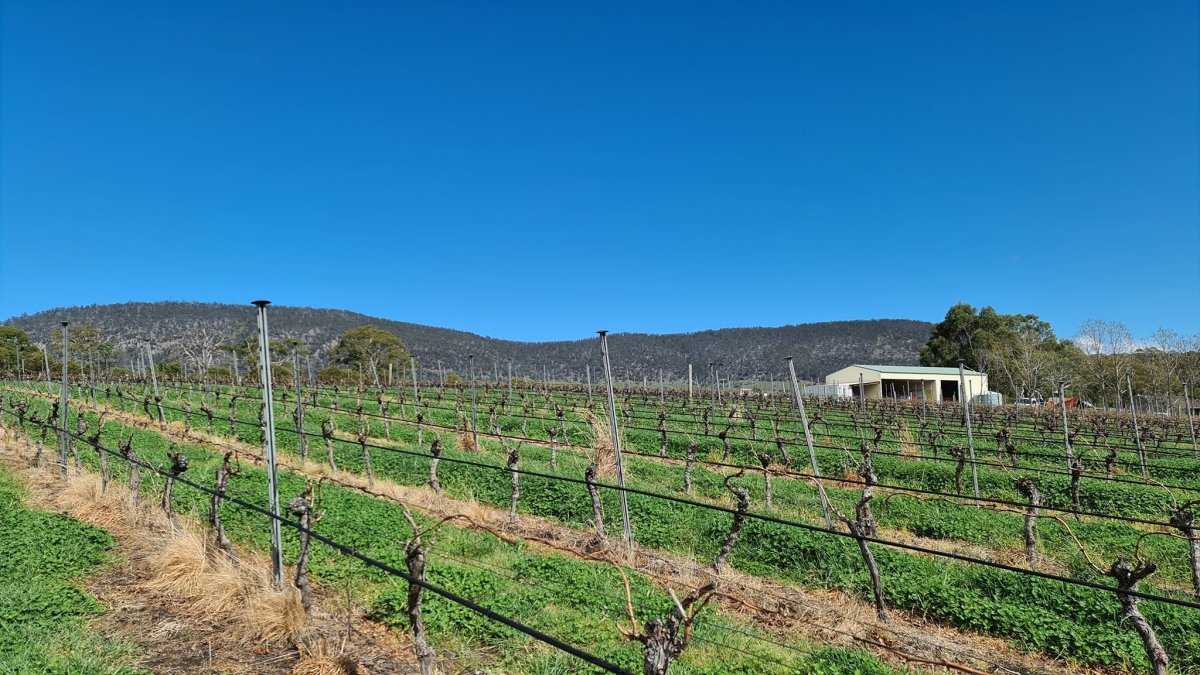Wine Tasmania’s VinØ (‘vin zero’) Program is a detailed resource that helps wine producers in the state measure, benchmark and improve their management and sustainability practices.
In place and updated annually since 2014, the program has now released its report for 2020 as well as announced the new program for 2021, showing an ongoing commitment to sustainability in the state’s wine industry.
The 2020 VinØ Program featured eight key modules – managing soil health, pest and disease management, biodiversity, water and waste management and social aspects, and two new modules – a stand-alone module on biosecurity, and a new winery module.
Each participant received an individual report on their performance as benchmarked against other participants, alongside practical resources to help them improve.
Paul Smart, Wine Tasmania’s Technical and Extension Officer said that with 22 participating wine producers, more than half of Tasmania’s vineyards were managed under the program this year.
“The aggregated score in 2020 was 2.37 out of a perfect score of four, with program members performing well in the areas of pest and disease management, water management and in social aspects,” Smart said.
“Wine Tasmania uses the VinØ Program results to guide priority activities and will therefore be focusing on the key areas for improvement including biodiversity, waste and biosecurity management in 2021.”
The 2020 report, which can be viewed here, shows that members of the VinØ Program are performing well in most modules, although there is also room for improvement. Compared to the last season however, more members are scoring higher.
The report noted: “18 per cent of the participants scored in the highest grades, a similar result to the previous season, with fewer members scoring less than 2. This reflects an overall improvement in member practices.”
The 2021 Program has also now been launched, with a new dedicated module on carbon emissions. It is also complimentary for all Wine Tasmania members, reflecting the impact of COVID-19 but the ongoing importance of sustainability in the industry.
Smart said: “Wine Tasmania is providing even more practical help, knowing that wine producers sometimes find it challenging to develop the many management plans required under the VinØ Program.”
One of the members of the program, Pooley Wines, understands the importance of future proofing the industry and so has just finalised its Sustainability Plan and Commitment Statement.
Owner John Pooley said: “In respect and recognition of the traditional owners and custodians, we have a shared responsibility to ensure the vitality and longevity of the land and the wines produced from it. Pooley Wines is committed to integrating sustainability through every facet of our operations from vine to wine to market.
“In the context of Pooley, our implementation of sustainable practices has been drawn from a definition which places sustainability as an ethos used to structure management practices, ethically govern capital assets; whether economic, environmental, human or social, while also holding ourselves accountable to these commitments.”
Another member of the VinØ Program, Tertini Wines, has vineyards in Tasmania and holds a similar sentiment about sustainability in Australian wine. Winemaker Jonathan Holgate said it was important for any business.
“We’re the custodians of the business and the land that we pass on to our next generation and we want to hopefully leave it in a better condition than when we took it on,” Holgate told National Liquor News.
“For Tasmania in general, it’s the ethos that most of the state is working towards in the first place, so it’s a very, very positive thing. I wish that more more businesses could think like that… [VinØ] is a great initiative – compliments to Wine Tasmania and Paul Smart who started it all up.”

